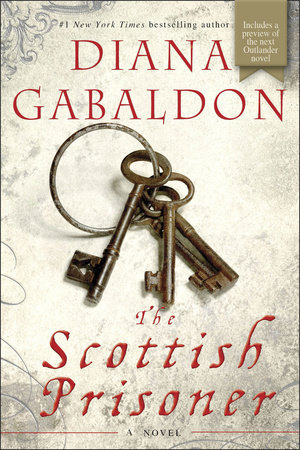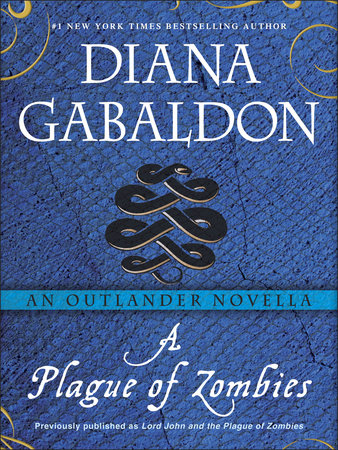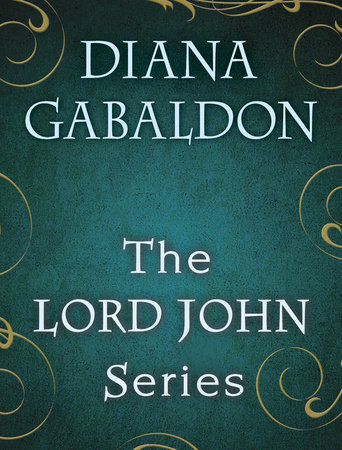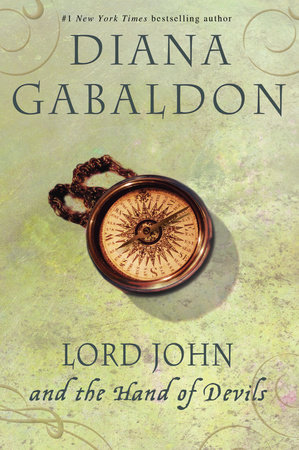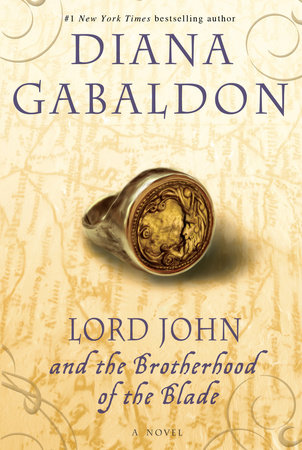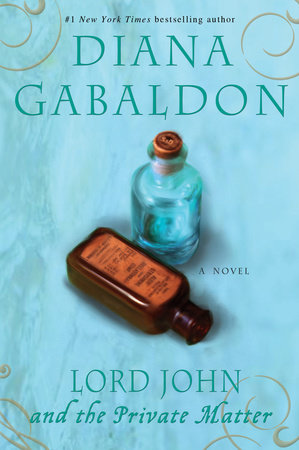Excerpt
The Scottish Prisoner
1 April Fool Helwater, the Lake District April 1, 1760 It was so cold out, he thought his cock might break off in his hand—if he could find it. The thought passed through his sleep-mazed mind like one of the small, icy drafts that darted through the loft, making him open his eyes.
He could find it now; had waked with his fist wrapped round it and desire shuddering and twitching over his skin like a cloud of midges. The dream was wrapped just as tightly round his mind, but he knew it would fray in seconds, shredded by the snores and farts of the other grooms. He needed her, needed to spill himself with the feel of her touch still on him.
Hanks stirred in his sleep, chuckled loudly, said something incoherent, and fell back into the void, murmuring, “Bugger, bugger, bugger . . .”
Jamie said something similar under his breath in the Gaelic and flung back his blanket. Damn the cold.
He made his way down the ladder into the half-warm, horse-smelling fug of the barn, nearly falling in his haste, ignoring a splinter in his bare foot. He hesitated in the dark, still urgent. The horses wouldn’t care, but if they noticed him, they’d make enough noise, perhaps, to wake the others.
Wind struck the barn and went booming round the roof. A strong chilly draft with a scent of snow stirred the somnolence, and two or three of the horses shifted, grunting and whickering. Overhead, a murmured “ ’ugger” drifted down, accompanied by the sound of someone turning over and pulling the blanket up round his ears, defying reality.
Claire was still with him, vivid in his mind, solid in his hands. He could imagine that he smelled her hair in the scent of fresh hay. The memory of her mouth, those sharp white teeth . . . He rubbed his nipple, hard and itching beneath his shirt, and swallowed.
His eyes were long accustomed to the dark; he found the vacant loose box at the end of the row and leaned against its boards, cock already in his fist, body and mind yearning for his lost wife.
He’d have made it last if he could, but he was fearful lest the dream go altogether, and he surged into the memory, groaning. His knees gave way in the aftermath and he slid slowly down the boards of the box into the loose piled hay, shirt rucked round his thighs and his heart pounding like a kettledrum.
Lord, that she might be safe was his last conscious thought. She and the child.
p[
He plunged at once into a sleep so deep and luxurious that when a hand shook him by the shoulder, he didn’t spring to his feet but merely stirred sluggishly, momentarily befuddled by the prickle of hay on his bare legs. His instincts came back to life in sudden alarm and he flung himself over, getting his feet under him in the same motion that put his back against the wall of the loose box.
There was a gasp from the small form in the shadows before him, and he classified it as feminine just in time to restrain himself from reflexive violence.
“Who’s that?” he demanded. He spoke low, his voice hoarse with sleep, and the form swayed back a little farther, exhibiting dubiousness.
He was in no mood for foolishness and shot out a hand, grabbing her by the arm. She squealed like a pig and he let go as though she were red-hot, cursing himself mentally as he heard the startled grunts and rustlings of his fellow grooms overhead.
“What the devil’s that?” Crusoe demanded, in a voice like a clogged pipe. Jamie heard him clear his throat and spit thickly into his half-filled pot, then bellow down the ladder, “Who’s there?”
The shadowy form was making wild motions, beseeching him to be silent. The horses were half awake, snorting with mild confusion but not panicked; they were used to Crusoe shouting in the night. He did it whenever he had the money to buy drink, waking from nightmares in a cold sweat, shrieking at his demons.
Jamie rubbed a hand over his face, trying to think. If Crusoe and Hanks didn’t already know he was gone, they’d notice in the next few seconds.
“Rats in the feed,” he shouted up. “I killed one.” It was a feeble story; there were always rats in the feed, and no one would have stirred a finger to investigate their noises in the dead of night, let alone hunt them in the dark.
Hanks made a sound of disgust, rustling his bedclothes. “The Scotchman’s buggering the horses again,” he said conversationally to Crusoe, though clearly speaking loud enough to be heard below. “Ought to speak to his lordship about it.”
Crusoe grunted angrily. “Well, whatever the fuck you’re doin’, MacKenzie, be quiet about it!” he shouted, and flung himself over on his pallet in a flurry of bother.
Jamie’s heart was pounding again, with annoyed agitation. He reached for the young woman—no auld crone squealed like that—but slowly this time, and she made no demur when he took her by the arm. He led her down the stone-flagged aisle between the stalls and outside, shoving the sliding door to behind them with a rumble.
It was cold enough out to make him gasp, an icy wind flattening his shirt to his body and stealing his breath. The moon was obscured by racing cloud, but enough glow came from the sky for him to make out the identity of his intruder.
“What the devil d’ye want?” he snapped. “And how did ye ken where I was?” It had dawned on him that she hadn’t just stumbled over him in the hay, for why would a lady’s maid be poking about the stables at night? She’d come looking for him.
Betty lifted her chin.
“There’s a man what wants to talk to you. He sent me to say. And I saw you come down from the loft.”
That last sentence floated in the air between them, charged like a Leyden jar. Touch it, and there’d be a spark that would stand his hair on end. Christ. Did she have any notion what it was he’d been doing?
He caught the hint of a smirk on her face before a cloud shadow obscured it, and his ears went suddenly hot with rising blood.
“What man?” he said. “Where?”
“An Irishman,” she said. “But a gentleman. He says to tell you the green branch will flower. And to meet him on the fells, where the old shepherd’s hut is.”
The shock of it nearly made him forget the cold, though the wind was ripping through the linen of his shirt and he was shivering so hard that he found it hard to speak without his voice shaking. And that wouldn’t do.
“I’ve nothing to do wi’ any Irishmen,” he snapped. “And if he comes back, ye may tell him so.” He put a hand on the door, turning to go in. “I’m going to my bed. Good night to ye.”
A light hand ran down his back and stopped just above his buttocks. He could feel the hair there bristle like a badger’s, and not from the cold.
“Your bed’ll be cold as death by now.” She’d stepped close; he could feel the slight warmth of her body behind him, the heat of her breath through his shirt. And she still had her hand on him. Lower now. “Mine’s a good deal warmer.”
Holy Lord. Arse clenched, he moved deliberately away from her and pushed the door open.
“Good night,” he said, without turning round, and stepped into the rustling, inquisitive dark of the stable. He saw her for an instant as he turned to shut the door, caught in the flickering moonlight, her eyes narrowed like an angry cat’s.
p[
He made no effort to be quiet, climbing the ladder back to the loft. Hanks and Crusoe were pointedly silent, though he thought neither one was asleep. God knew what they’d say about tonight’s incident, but he wasn’t disposed to be worrit over that pair. He’d enough else to think on.
Betty, for one. For if anyone on Helwater estate knew his great secret, it was she. Betty had been Geneva Dunsany’s lady’s maid before becoming maid to her sister after Geneva’s death. How much of a confidante had she been, though?
He could still feel the pressure of her hand on his backside and squirmed his arse irritably into his pallet, the straw under his blanket poking him. Damn the woman. She’d given him an eye when he’d first come to Helwater from Ardsmuir prison three years before, a paroled Jacobite traitor, but a lady’s maid had little to do with a groom, and it was easy enough not to see her long-eyed glances when she came to tell him that Lady Geneva wanted her horse. Not so easy to avoid Lady Geneva.
He grimaced in the dark at thought of Geneva. He wasn’t feeling charitable at the moment but crossed himself nonetheless and said a brief prayer for the repose of her soul, as he did whenever she came into his mind. He owed her that much, poor lass, no matter what she’d done to him.
But why the devil was Betty playing the loon now? Geneva had been dead more than two years, and Betty herself had come back to Helwater soon after her mistress’s death in childbirth. She’d not spoken a word to him in the last six months; why go to the risk of coming to the stable at night—and, come to that, what had the silly wee bitch intended? Climbing the creaking ladder and sliding into his bed unannounced, with Hanks and Crusoe curled under their blankets six feet away, their great ears flapping? Sneaking him into the servants’ attic?
She couldn’t have meant to wait below for him; she hadn’t known he’d come down. For that matter . . . she said she’d seen him descend the ladder, but she hadn’t come to him then. Why not?
The logical answer presented itself, with a small jolt to the pit of his stomach. She hadn’t been looking for him at all.
He sat bolt upright before the train of his thought had entirely finished, his body grasping the point at once. She’d come to meet someone else, and that meeting had been interrupted by his own inopportune appearance.
An intruder couldn’t have hidden in an occupied stall or anywhere else . . . save the vacant loose box near the door.
And that’s why she woke me, he thought, hands clenching on the blanket. She had to draw me away, so the fellow could get out. Christ, he was in there with me! His skin prickled with mingled embarrassment and fury. The notion that . . . could it be possible . . . surely he would have sensed someone . . . ?
But he wouldn’t. He’d been so desperate to find solitude in which to reach Claire for that one necessary moment that he wouldn’t have noticed a bear lurking in the shadows, provided it hadn’t tried to interrupt him.
One of the cocks in the hen coop crowed, two more on its heels. A sleepy “Oh, fuuuck” came from a nearby pallet. A loud rustle of someone sitting up, and the hawking and snorting started. Hanks smoked heavily—when he could afford it—and took a good quarter hour to start breathing in the morning.
Jamie breathed deep himself, thinking. Then flung back his blanket and rose to meet what was likely to be an interesting day.


